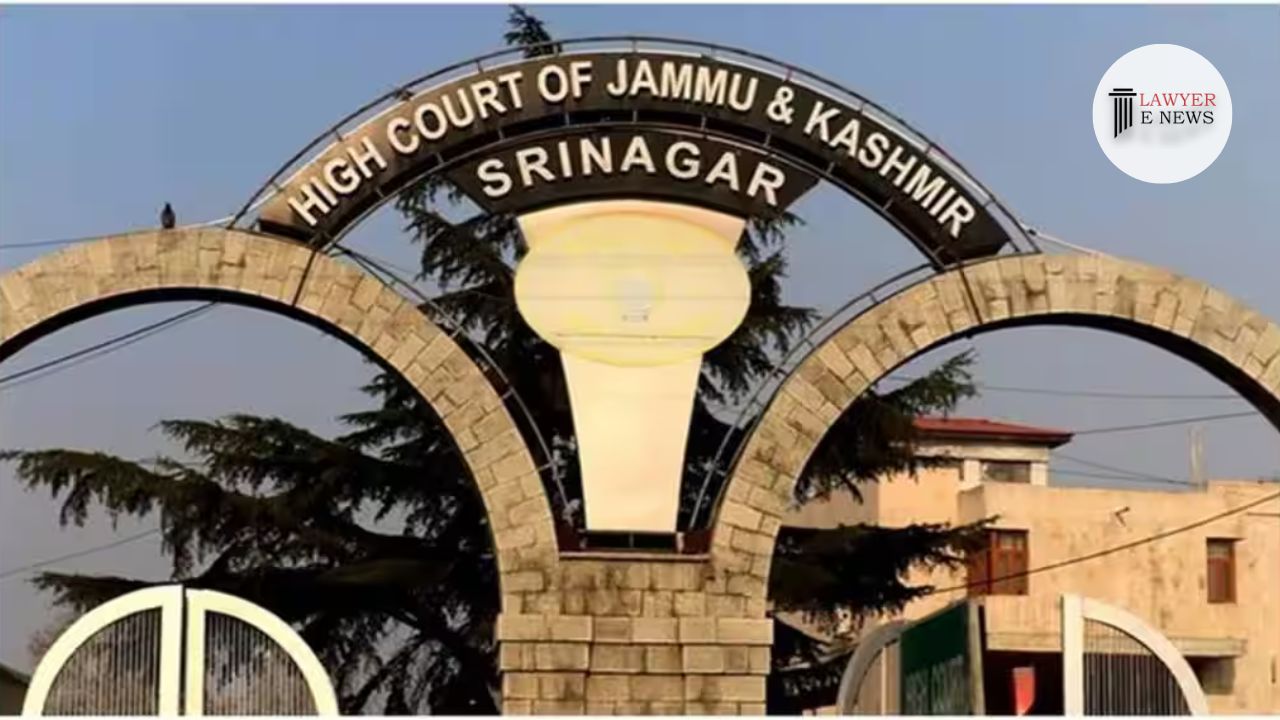-
by Admin
15 February 2026 5:35 AM



The High Court of Jammu & Kashmir and Ladakh, in a significant ruling, has upheld the trial court’s decision to accept late written statements filed by the defendants in the case of Chaman Lal vs. Mohd Sharief and Sudesh Kumar. The judgment, delivered by Hon’ble Mr. Justice Sanjay Dhar, emphasizes the application of the Covid-19 exclusion period as directed by the Supreme Court and acknowledges the waiver of procedural rights by the plaintiff’s counsel.
The petitioner, Chaman Lal, filed a suit seeking declarations that certain sale deeds and an order by the Tehsildar were null and void, alongside a permanent injunction against the defendants. The suit was presented on 18.09.2021, and the respondents were served summons. Both defendants failed to file written statements within the mandatory 120 days, prompting the trial court to grant extensions, which were later challenged by the petitioner.
Credibility of Covid-19 Exclusion Period: The court underscored the Supreme Court’s directives in Cognizance for Extension of Limitation, Suo Motu Writ Petition © No. 3/2020, which mandated the exclusion of the period from 15.03.2020 to 28.02.2022 from all judicial proceedings. This directive was pivotal in assessing Defendant No.1’s written statement, filed on 28.05.2022, as timely within the extended limitation period.
Waiver of Right by Plaintiff’s Counsel: For Defendant No.2’s written statement, filed beyond the 120-day limit, the court noted the trial court’s record of the plaintiff’s counsel conceding no objection to the late filing. The High Court validated this concession as a waiver of the statutory right under Order 8, Rule 1 of CPC, emphasizing that such rights can be waived by conduct.
Justice Dhar analyzed the procedural implications of the Covid-19 directives and the strategic concessions by the plaintiff’s counsel. The exclusion of the pandemic period ensured justice was served under exceptional global circumstances. The plaintiff’s waiver was deemed a deliberate and binding decision, allowing the trial court to accept the late filing without further dispute.
Justice Dhar remarked, “In view of the Supreme Court’s directions, the period from 15.03.2020 till 28.02.2022 shall stand excluded for the purposes of limitation, thus validating the acceptance of Defendant No.1’s written statement filed on 28.05.2022.” Regarding the waiver by the plaintiff’s counsel, he stated, “A statutory right can be waived by conduct, and the concession made by the plaintiff’s counsel on 31.10.2022 was a conscious decision, thereby binding the plaintiff.”
The High Court’s decision to dismiss the petition highlights a flexible yet principled approach to procedural compliance during the Covid-19 pandemic. By upholding the trial court’s orders, the judgment reaffirms the judiciary’s adaptability in ensuring procedural justice. This ruling not only clarifies the application of limitation periods during the pandemic but also emphasizes the binding nature of strategic legal concessions, setting a significant precedent for future procedural disputes.
Date of Decision: 3rd May 2024
Chaman Lal vs. Mohd Sharief and Sudesh Kumar
